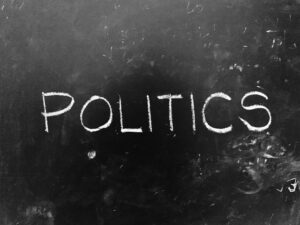As high inflation persists, why does President Joe Biden continue to argue for raising taxes, especially on corporations and individuals? In Wall Street Journal, for example, Biden recently argued that if Americans want to stabilize prices, they should want to “end the outrageous unfairness in the tax code.”
Economists from his own party, including Clinton Treasury Secretary Larry Summers and Obama Council of Economic Advisors chair Jason Furman, have failed to persuade the president that tax rates have little to do with inflation, which arises when too much money is chasing too few goods and services. If anything, these liberal experts have tried to explain, boosting marginal tax rates will only discourage the additional investment in goods and services needed to tame price increases.
To understand Biden’s stubborn preoccupation with raising taxes, one must understand the perspective of a Democrat who was elected president at a moment when the days of excessive federal money printing appeared to be numbered. Biden’s own contributions to the national-debt crisis—the $1.9 trillion American Rescue Plan, subsequent attempts to pass an even larger Build Back Better bill, and his desire for student-loan forgiveness—have certainly aggravated that problem but were not its only causes. For far too long, our leaders in Washington have gambled that the U.S. economic system could withstand an ever-widening disconnect between spending and revenues without experiencing persistent inflation.
Now, sadly for Biden, the gamble has proved a failure. From here on, both the president and Congress will be pressured to restore some fiscal balance. Beyond the public’s anger over inflation, the accompanying rise in interest rates on government debt, which threatens to dwarf every other federal expenditure, will only make their task more urgent.
Bridgewater Associates founder Ray Dalio has outlined an approach to solving this problem in his exhaustive study of the history of sovereign debt crises, appropriately titled Principles for Navigating Big Debt Crises (2018). As Dalio emphasized, the first and most important of these principles is that no nation emerges from a severe overspending problem without its major political factions agreeing to sacrifice for the greater good. After a lot of initial yelling and blaming, politicians across the political spectrum must either share in the required pain or sink together into the chaos of an economic collapse.
For their part, Republicans and conservatives will almost certainly have to accept some form of means-testing for the country’s two biggest entitlement programs, Social Security and Medicare. The right will also have to agree to a reduction in farm subsidies and policies that favor the affluent. While increasing taxes on the private sector would, in the end, only diminish what it can contribute to the federal treasury, reducing many of the benefits it currently gets from government would not have that effect.
Unfortunately for Democrats and progressives, their sacrifice will have to be as much structural as economic. The poor performance of so many progressive-favored government programs over the years has convinced voters that those employed to deliver public services are profiting far more from those programs’ operation than the supposed beneficiaries. As Larry Summers himself said of federal education policy in a recent Politico forum with Dalio, “Of course, there’s always the question: if you put more money into the school system, does it come out in the form of more education for more kids or more administrators (and) more comfortable lives for those in the existing system?”
As long as the bill for these perceived government inefficiencies seemed chargeable to a distant future, taxpayers tended to ignore the size of the bill. Even after 2014, when the Heritage Foundation put the total spent on President Lyndon Johnson’s failed War on Poverty at $22 trillion dollars—more than two-thirds the current federal debt—there was little clamor to make social programs more effective.
But as it becomes clear that taxpayers themselves must pick up the tab for bureaucratic wastefulness, it will be impossible to resist the demand for a rigorous performance review of every federal agency and publicly subsidized service. Perhaps in anticipation of such demands, the U.S. Government Accountability Office has already prepared a continuously updated list of the 34 programs that most obviously “need broad reform.”
Which brings us back to Biden’s tax obsession.
For a president whose base contains many people employed by government, acceding to demands for programmatic efficiency that would have to be part of any bipartisan debt deal is not a happy prospect. Negotiating with Republicans will likely prove a cakewalk compared to wrangling his allies in public-sector unions and other left-wing interest groups.
Indeed, it is not a coincidence that Democrats have been seen as a party without a top-notch bench of presidential and congressional candidates. Conventional wisdom holds that progressive activists have outfoxed liberals for control of the party, but it may be more likely that potentially successful Democrat candidates don’t want to participate in the left’s coming internal convulsions.
Since Biden is unable or unwilling to persuade Democratic voters in the public sector to sacrifice their employment advantages for the sake of the nation’s economic future, his strategy has been to deflect blame for his and his party’s role in creating the debt crisis. By harping on “unfairly low tax rates,” he has identified a cause that can be easily demagogued.
Whether Biden himself is the author of this dishonest strategy or is being prompted by others in his administration is a legitimate question, given the widespread doubts about his mental competence. If Democrats like Larry Summers and Jason Furman have been able to understand the country’s financial problems, many of the president’s own advisors must certainly be aware of the need to manage the looming acrimony within their own party. Regardless of who is behind the calls for “tax fairness,” the more Biden is forced to negotiate spending cuts and reforms, the more we are all going to hear about an “urgent fairness problem”—one that smart policymakers on both sides of the aisle hope never gets solved.





